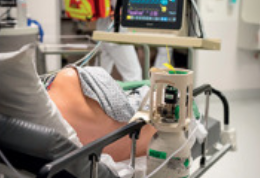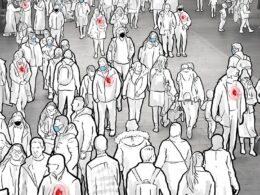the health strategist
knowledge platform
health management , engineering, and technology strategy
for continuous transformation
Joaquim Cardoso MSc.
Chief Research Officer (CSO), Chief Editor
Chief Strategy Officer (CSO) and Senior Advisor
August 2, 2023
What is the message?
According to figures from the U.S. Centers for Disease Control and Prevention (CDC), about one out of every seven strokes is caused by atrial fibrillation, or “Afib”.
By some estimates, people who have Type 2 diabetes are 34% more likely to develop Afib than people without diabetes.
The article highlights the significance of controlling diabetes through effective glycemic management, and it also presents hope in the form of specific classes of diabetes medications, such as SGLT2 inhibitors and finerenone …
Executive Summary
- This article explores the intricate relationship between diabetes and heart arrhythmias, with a primary focus on atrial fibrillation (Afib). It begins by emphasizing the incredible workload of the human heart, beating approximately 3 billion times in an average lifetime, ensuring a constant supply of freshly oxygenated blood to the bloodstream. However, when the heart’s harmony is disrupted, arrhythmias occur, leading to a range of complications from fatigue to life-threatening heart attacks and strokes.
- Drawing from the renowned Framingham Heart Study, researchers established nearly three decades ago that individuals with diabetes face an elevated risk of developing Afib. Recent research further delves into the complexities of this connection, with hypotheses suggesting that elevated blood sugar levels may inflict damage on the heart, diabetes-induced hypertension could lead to arrhythmias, and diabetes-related inflammation might play a role in their development.
- The article highlights the significance of controlling diabetes through effective glycemic management, and it also presents hope in the form of specific classes of diabetes medications, such as SGLT2 inhibitors and finerenone, which exhibit potential in reducing the risk of arrhythmias. However, the need for comprehensive research, including randomized controlled trials, is underscored to conclusively validate these findings and optimize treatment approaches.
- In the meantime, individuals with diabetes are encouraged to adopt proactive measures to safeguard their heart health, focusing on glycemic control, adopting healthy dietary habits, engaging in regular physical activity, quitting smoking, maintaining a healthy weight, practicing moderate alcohol consumption, and prioritizing sufficient rest.
- Moreover, the article emphasizes the importance of patients proactively discussing heart-related complications with their healthcare providers, seeking guidance on optimal diabetes treatments that align with reducing arrhythmia risks.
- Patients diagnosed with both diabetes and arrhythmias face a challenging and complex scenario, necessitating further exploration of treatment strategies that address both conditions effectively.
- Considering the escalating prevalence of diabetes, the article highlights the urgency of ongoing research efforts that seek to manage associated complications, including arrhythmias. Despite the promising medications in the research pipeline, the present emphasis on comprehensive diabetes management and healthy lifestyle practices offers a tangible way to mitigate heart complications, fostering hope for even more advanced breakthroughs in the future.
This is an Executive Summary of the article “The Connection Between Diabetes and Heart Arrhythmias”, written by “ Markham Heid”, and publised on “Time” on July 25, 2023.












